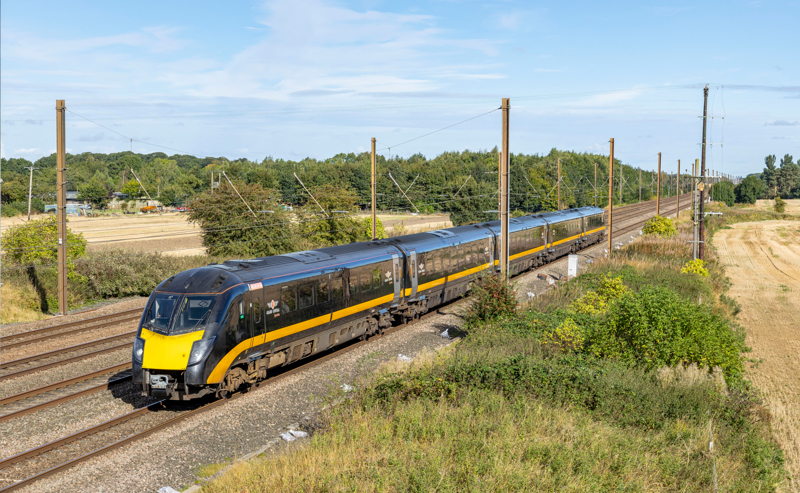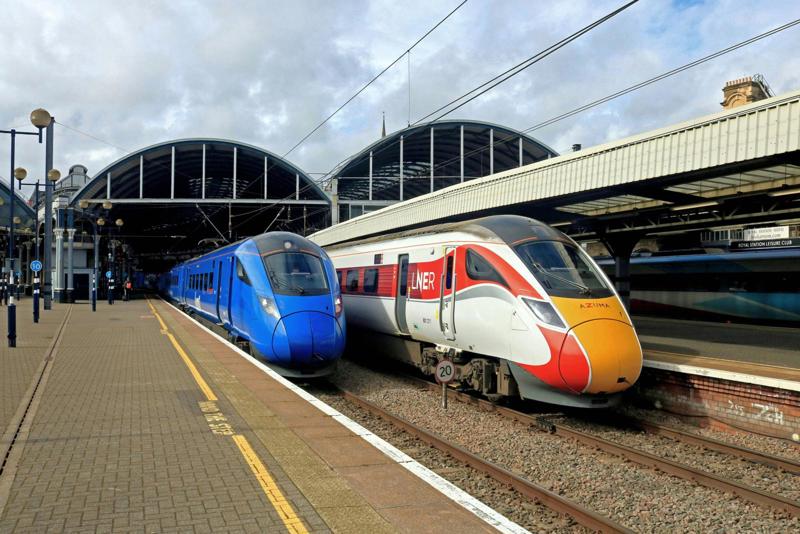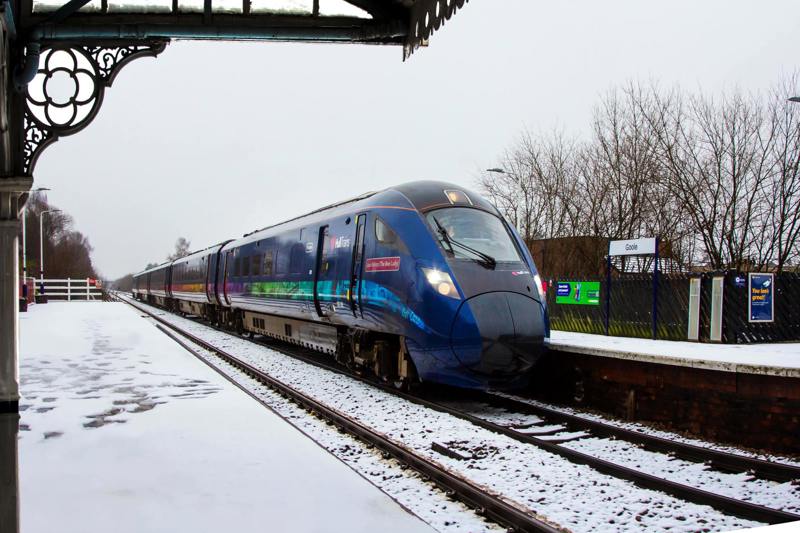
Open access operators have pushed back against the Department for Transport (DfT) after it opposed eight out of nine track access applications.

Open access operators have pushed back against the Department for Transport (DfT) after it opposed eight out of nine track access applications.
A letter from Joe Hickey, DfT’s Deputy Director, Rail Reform Coherence and Cross Cutting Policy, to Gareth Clancy, Head of Access and Licensing at the Office of Rail and Road (ORR), raised numerous concerns on all applications.
The letter said that only the Wrexham, Shropshire and Midlands Railway (WSMR) application passed the ‘Not Primarily Abstractive’ (NPA) revenue threshold of 0.3, according to DfT analysis.
However, the letter said even that application, which it supports, posed network performance risks.
Hickey wrote that the DfT was “concerned by the potential taxpayer impact of a number of these applications - both individually and cumulatively”.
He added: “All of these proposed services would have potentially detrimental operational impacts upon network performance if they were approved,” noting that this applied particularly on the West Coast and East Coast Main Lines, and between Sheffield and Manchester.
The letter concluded: “We remain committed to a lasting role for open access moving forward and to the benefits that it can bring for passengers in the right circumstances, but it is important for us to manage impacts to taxpayers and to ensure that the network operates effectively.”
However, these objections have been given short shrift by open access operators.
In a letter responding to DfT’s concerns, First Rail’s Open Access Commercial Director Stuart Jones said that in 25 years of open access operations there have been “no real-life examples of track capacity, performance or abstraction risks manifesting themselves”.
He wrote: “There is strong evidence to the contrary that shows that - despite early opposition from the DfT - Lumo, Hull Trains and Grand Central have all been successful for passengers and co-exist with other operators on their routes without issue.”
Jones added that FirstGroup understood DfT’s NPA analysis to be based on MOIRA modelling (to predict future passenger use) and did not take into account under-served markets benefiting from improved services or modal shift to rail.
He also raised factual errors in the Department’s letter, saying the Newcastle application was for one service instead of multiple services.
In its objection to Lumo’s Edinburgh-Glasgow plan, DfT said it remained “concerned regarding capacity constraints at various points including London King’s Cross and Newcastle”.
Jones countered that FirstGroup was “unclear” as to how that was possible, and that work had been done with Transport Scotland and Network Rail, with paths not conflicting with any potential CrossCountry services that could connect the two cities.
Open access operators said they were not surprised by DfT’s opposition to their applications, telling RAIL this stance was “not unusual”.

Ian Yeowart, Managing Director of Alliance Rail, described it as “disappointing, but not unexpected”.
Despite previously supporting it, DfT now opposes Yeowart’s Cardiff-Edinburgh plan due to CrossCountry’s own service, congestion in the Sheffield area, and capacity concerns on the ECML and south of Birmingham.
Yeowart countered that passengers between Sheffield and Manchester who moved to his services would quickly be replaced on CrossCountry trains.
He criticised the DfT for working in a silo, saying that if his application was successful, Alliance Rail would start with Class 222 diesel multiple units but then place an order with Hitachi for 42 new carriages - a move which “would be good for employment”.
He added: “The biggest irony is the real start of open access was all approved under a Labour administration. It’s why I find it difficult they move so far from one side to the other. I know a significant number of applications have a huge amount of political support from the ‘red side’.”
DfT said Virgin’s application for more than 60 daily WCML services to destinations including Glasgow and Liverpool would take paths and drivers from current operator Avanti West Coast, as well as taking capacity from future HS2 services as they join the existing network.
Hickey’s letter also said that the number of paths requested would “undoubtedly cause unacceptable levels of detrimental performance impacts” at the southern end of the route.
Virgin said it had worked with Network Rail to “ensure the proposals contribute to improved performance on the West Coast Main Line, accounting for HS2 and the many infrastructure upgrades and track changes expected”.
Writing to ORR to dispute all DfT claims, Virgin’s Rail Consultant Phil Whittingham said it would only be running in unused Avanti paths and did “not envisage any adverse impacts” on the network.
Regarding concerns of HS2 services being affected, Whittingham said the bigger concern was “the current shortfall in passenger numbers when compared to growth on the East Coast”, saying this was something Virgin could address.
“HS2 is intended to release capacity on the WCML, and given the reports that capacity will be reduced to cities in the North compared with today by virtue of having smaller capacity trains, additional services must surely be needed,” he said.
He also said that the most recent public comments by Avanti West Coast on driver numbers suggested they had enough, but added that Virgin highlighted driver shortages before losing the West Coast Main Line franchise.
Grand Central said it was disappointed not to receive DfT support, but it would continue “to demonstrate these services can be accommodated and to make clear the benefits they would bring”.
ORR continues to assess all applications.
Open access applications DfT wrote to ORR about

FirstGroup (Hull Trains): One additional path Monday-Saturday on existing route.
FirstGroup (Hull Trains): London King’s Cross-Sheffield via Worksop.
Alliance Rail: Cardiff-Edinburgh. Wrexham, Shropshire & Midlands Railway: London Euston-Wrexham via Walsall and Shrewsbury.
FirstGroup (Lumo): One additional path between London King’s Cross and Newcastle. FirstGroup (Lumo): Edinburgh- Glasgow Queen Street.
Grand Central: Two additional paths (one on Sunday) on Bradford route, one late evening passenger service London King’s Cross-Wakefield Kirkgate, passenger service between Wakefield and Bradford Interchange, four Sunderland services to call at Seaham.
Virgin Trains: London Euston- Preston/Rochdale via Manchester, Liverpool Lime Street, Birmingham New Street, Glasgow Central.
FirstGroup (Lumo): London Euston-Rochdale via Manchester Victoria.
DfT objections
King’s Cross-Hull (Hull Trains): ECML capacity; King’s Cross and Doncaster platform capacity; constrain additional LNER Leeds service.
King’s Cross-Sheffield (Hull Trains): NPA ratio 0.26; Sheffield station capacity - impact on CrossCountry running additional Reading- Newcastle services; ECML capacity.
Cardiff-Edinburgh (Alliance Rail): NPA ratio 0.21-0.24; similar CrossCountry service on same route; ECML capacity north of York; capacity south of Birmingham.
King’s Cross-Newcastle (Lumo): ECML capacity; King’s Cross and Newcastle platform capacity; constrain additional LNER Leeds service.
Edinburgh-Glasgow Queen Street (Lumo): ECML capacity, particularly King’s Cross and Newcastle; impact on services operated by Scottish government; CrossCountry investigating reinstating services.
King’s Cross-Bradford (Grand Central): ECML capacity; impact on LNER’s Bradford Forster Square service; competing with CrossCountry paths north of Doncaster; further Peterborough stops - further abstraction.
London Euston-Preston/ Rochdale, Liverpool, Birmingham, Glasgow (Virgin): WCML capacity; NPA ratio 0.21; at odds with Transpennine Route Upgrade; paths belong to Avanti West Coast - still stepping up services; drivers being taken from Avanti; using capacity for future HS2 services.
London Euston-Rochdale (Lumo): NPA ratio 0.14; generating £760,000 new revenue per year; conflicts with Manchester Task Force to improve service patterns in the city; impact on future HS2 services and benefits; WCML power supply.
London Euston-Wrexham (WSMR)*: WCML capacity
*DfT supports.
Login to continue reading
Or register with RAIL to keep up-to-date with the latest news, insight and opinion.


















Login to comment
Comments
No comments have been made yet.